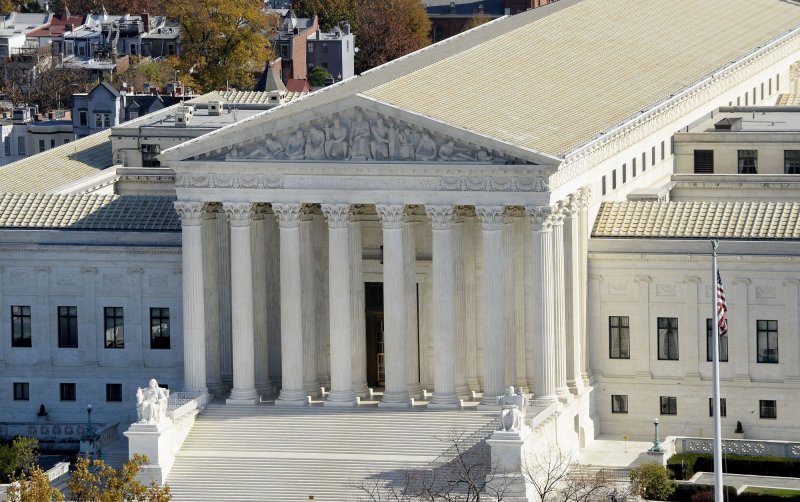The U.S. Supreme Court began hearing arguments in a case to determine whether the government should be limited in how long it can detain immigrants convicted of a crime without offering them a bond hearing or actual bond. Pool photo by Olivier Douliery/UPI |
License Photo
WASHINGTON, Nov. 30 (UPI) -- The immigration system, which includes the courts, is expected to get much busier next year when President-elect Donald Trump takes office based on his proposals to deport millions of undocumented immigrants from the country.
The Supreme Court on Wednesday started hearing arguments in a case appealing the strict length of time the government can detain immigrants, documented or not, and whether they have a right to periodic hearings to request being released.
The U.S. Court of Appeals for the 9th Circuit ruled that immigrants facing deportation could not be held for more than six months, which the Obama administration contends is a risky "one-size-fits-all" rule tying its hands in cases where a person should not be released.
The case could potentially affect a wide range of immigrants, both legal and illegal, who have committed a crime and are waiting for deportation proceedings to begin. Often, these immigrants are detained, in some cases because they are trying to fight deportation.
Unlike immigrants who are detained for being in the U.S. illegally, who have the right to a bond hearing, those who have been convicted or served a sentence do not have the right to such a hearing in all states.
"You can't just lock people up without any finding of dangerousness, without any finding of flight risk, for an indefinite period of time, and not run into due process," Justice Elena Kagan told lawyers for the Obama administration.
The Court ruled in 2003 that immigrants could be detained "for a brief period" while they face deportation, with two courts later defining that period as no more than six months. But after that maximum period, immigrants are entitled to a hearing requesting they be released if they are not dangerous or a flight risk.
Chief Justice John Roberts and Justice Samuel Alito said the court does not need to rule because immigrants subject to deportation who feel they are being illegally detained can file a habeas corpus suit. The suits, however, can take years -- which does not solve the problem of being stuck in jail.
"Your punishment's over, but you've got four more years here of punishment while we try to get to stage two, which is called the removal order," Justice Stephen Breyer said of denying people the chance to be out of prison while also either waiting for or fighting a deportation order. "That's what's bothering me."
Breyer also noted the potential for the courts and immigration system to be much more crowded in the near future should President-elect Trump make good on his intention to start deporting as many as three million people the day he takes office -- on top of those already in the system.
"We're dealing with tens of thousands, hundreds of thousands or millions of people possibly," he said.
The Court is expected to rule sometime next year.















